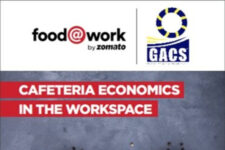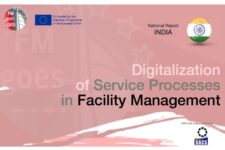Project Management & Real Estate
Commercial Real Estate (CRE) signifies real estate assets owned or leased by a business enterprise / corporate occupier for its operational / income generating purpose. A CRE portfolio may include corporate headquarters and branch offices. Manufacturing facility as well as retail sites can also be a part of this portfolio in some cases depending on the nature of business of the enterprise. The commercial market can be bifurcated into properties available for lease or outright purchase and is serviced by corporate real estate professionals basis the objective of the business enterprise. Project management (includes interior fit-outs) and facility management are other important business aspects that are covered in the gamut of commercial real estate.
CRE is commonly understood as the universe of Grade-A office space in a geography. This can be divided into the inventory of completed assets and the upcoming supply or development pipeline in a market. Ownership of assets bifurcated into strata-sold, developer-owned and developer – institutionally owned is another key feature of the CRE landscape. To illustrate, Delhi NCR has a completed inventory of 126 msf (Q1 2022) which is likely to grow by another 22 – 25 msf till 2024 across the submarkets of Gurugram, Noida and Delhi.
The CRE ecosystem is increasingly evolving with strong and active interest of institutional investors in the Indian office landscape. Office asset ownership is being increasingly redistributed between traditional landlords and large foreign institutional players. A fast growing, investor-friendly economy, resilient office market in major cities, and also developers’ efforts to lower debt from their balance sheets are key factors behind the rising interest of institutional investors. With three successful REIT listings in the country since 2019 and more in the pipeline, institutional participation in office assets is only bound to increase. This will make the office market more mature with best practices in asset management and driving marquee corporate occupiers towards such properties. Tenants are also increasingly driven towards well-managed projects with superior asset management, good hygiene standards as well as a thrust on sustainability. Such projects generally enjoy higher occupancy levels and premium rentals over the market average through the positive tenant experience they create.
The growing acceptance of flexible workspace is also playing a pivotal role in changing the CRE market dynamics. Amenitized new-age office spaces that take care of all operational and administrative issues of corporate occupiers are being well-embraced by both start-ups as well as enterprise clients off late. This is also influencing innovative alliances and partnerships between CRE developers and flexible workspace operators to offer ‘office space as a service’ than the traditional real estate offering.
Articles
CAFETERIA ECONOMICS IN THE WORKSPACE
The non-agricultural workforce, is estimated at ₹24 Crores as per the NSSO Employment – Unemployment Survey (2011). Within…
Relocation Management
•Transfer of a department of a business or the entire business, employees and /or their families to a…
FMgoesDIGI Report INDIA – 2022
“Digitalization of Service Processes in Facility Management – FM Goes DG”, is a project/survey of FM House (Spain),…
White Papers
Project Management & Real Estate
CM is a management process that identifies risk, threats and vulnerabilities that could impact an entity’s continued operations…
Videos
GACS & WTC: Hand-In-Glove During the Pandemic
Leading the way forward and setting benchmark in real estate practices.
GACS Technical Tuesday How IoT is creating Smart Buildings by Mr Rahul Bhalla
Are we working in Smart Building? What is Smart Building? Today, we will have Mr. Rahul Bhalla from…








